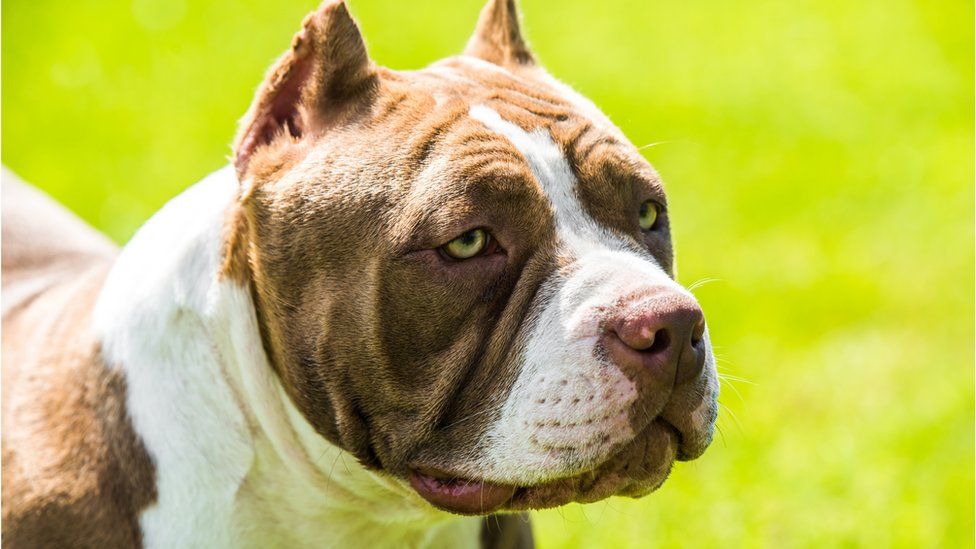-

-
-
Loading

Loading

The UK's chief veterinary officer, Christine Middlemiss, has announced that there will not be a cull of American bully XLs, following the ban announcement by Rishi Sunak. Instead, an "amnesty" will be implemented where owners will need to register their dogs and take certain actions, such as muzzling them in public. This comes after the death of a man in a suspected attack by two American bully XLs. While many support the ban, others believe that a breed-specific ban will not be effective. Ian Price, a 52-year-old man, tragically lost his life after being attacked by two suspected American bully XLs near Walsall. A 30-year-old man has been arrested in connection with the incident and has been released on conditional bail. Speaking on BBC Radio 4's Today programme, Prof Middlemiss explained that owners of these dogs will need to comply with various actions. This includes neutering the dogs, muzzling them in public, keeping them on a lead, and ensuring they are insured. However, if owners comply with these actions, they will be allowed to keep their dogs. On Friday, Rishi Sunak declared that American bully XLs are a danger to communities and announced a ban that will be implemented by the end of the year. However, environment minister Mark Spencer noted that it will take time to ban the dogs as a process of identifying the characteristics of the breed needs to be undertaken. The aim is to strike a balance between eliminating dangerous dogs while protecting people's pets. Rishi Sunak has ordered work from police and experts to legally define the breed so that it can be banned under the Dangerous Dogs Act. Labour leader Sir Keir Starmer supports the ban and urges the government to proceed with it as soon as possible. American bully XLs are the largest type of the American bully dog and can weigh over nine stone. However, they are not recognized by major British dog associations like the Royal Kennel Club. This breed has been involved in multiple high-profile attacks, including one where an 11-year-old girl was attacked by an American XL bully and Staffordshire Bull Terrier cross. Not all agree with implementing a breed-specific ban. Sophie Coulthard, owner of a bully XL dog named "Billy," argues that blaming the dog instead of the circumstances is unfair. She claims that her dog and many others are well-trained and well-behaved family pets. The Dog Control Coalition, which includes organizations like the RSPCA and Battersea Dogs Home, also opposes a breed-specific ban, stating that it will not prevent incidents from happening and that the government should focus on tackling irresponsible owners and breeders instead. The government is taking steps to address dog-related incidents. The Department for Environment, Food and Rural Affairs is responsible for implementing any ban, and they have been working on plans to outlaw American bully XLs. However, the exact timeline for the ban is unknown. There has been an increase in offenses involving out-of-control dogs causing injuries, with nearly 22,000 such incidents recorded in 2022. This prompted concerns about the effectiveness of the Dangerous Dogs Act. The government must prioritize addressing unscrupulous breeders and irresponsible owners who prioritize profit over the welfare of dogs. The lack of data behind the decision to ban American bully XLs is also a matter of concern for the Dog Control Coalition. If you have any experience with American bully XLs, you can share your thoughts by emailing haveyoursay@bbc.co.uk. Please provide your contact number if you are willing to speak to a BBC journalist.